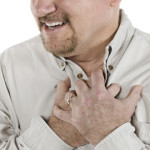
If you suffer from gastroesophageal reflux disease (GERD), it is commonly suggested to avoid certain foods and drinks that may trigger more severe symptoms. Although the cause of GERD is different for each person, certain dietary factors are believed to be associated with the symptoms you may experience. Among the beverages, alcoholic drinks have been notably identified as triggers. What exactly is the connection between alcohol and GERD?
Some beverage choices that have been distinctly noted as triggers are alcoholic beverages such as:
- Beer
- Liquor
- Wine
The consumption of alcohol, specifically chronic and long-term consumption, can damage many systems and organs in your body and put you at risk for a number of adverse health concerns. This could include the function of your lower esophageal sphincter (LES) which functions as a barrier between the esophagus and the stomach, or another esophageal function. Although the association between GERD and alcohol isn’t distinctly defined, it has been seen that alcohol increases reflux symptoms in patients suffering from the disorder.
Studies have shown that the consumption of alcohol (specifically right before lying down) can:
- Impair the ability of the esophagus to clear acid
- Relax the lower esophageal sphincter (LES) making it easier for acid to pass into the esophagus
- Increase the production of acid in the stomach
- Lead to inflammation of the stomach that can lead to heartburn
Different alcoholic beverages may affect an individual differently than another, but generally it is noted that all forms of alcohol could possibly affect GERD.
Treating GERD
GERD is a disorder that will affect each individual differently. Certain “trigger foods” may instigate symptoms for some, while others will not. Triggers for GERD will be affected by your individual risk factors such as:
- Obesity (weight)
- Medications
- Health conditions (such as hiatal hernia)
- Pregnancy
- Smoking and tobacco use
Although some cases of GERD may require reflux surgery treatment usually consists of:
- Over the counter antacids
- H2 blockers or Proton Pump Inhibitors (PPI’s)
- Lifestyle changes such as weight management and dietary changes
Managing Alcohol and GERD
One easy way of treating and managing the disruptive symptoms of GERD is to keep a log of food and beverages and how they affect your reflux disease. This will help you to identify your personal triggers and to comfortably manage your disorder. Reviewing your log periodically may show a connection between alcohol and GERD symptoms.
If you suffer from GERD you will want to be wary of your consumption of alcohol. If you do decide to drink, try to drink moderate amounts over an extended period of time. Do not consume alcohol directly before lying down or getting ready to go to sleep.
GERD can be painful and can greatly affect your quality of life so it is important that you are able to determine your personal triggers and work with Dr. Bagnato to successfully manage the symptoms of reflux disease.



